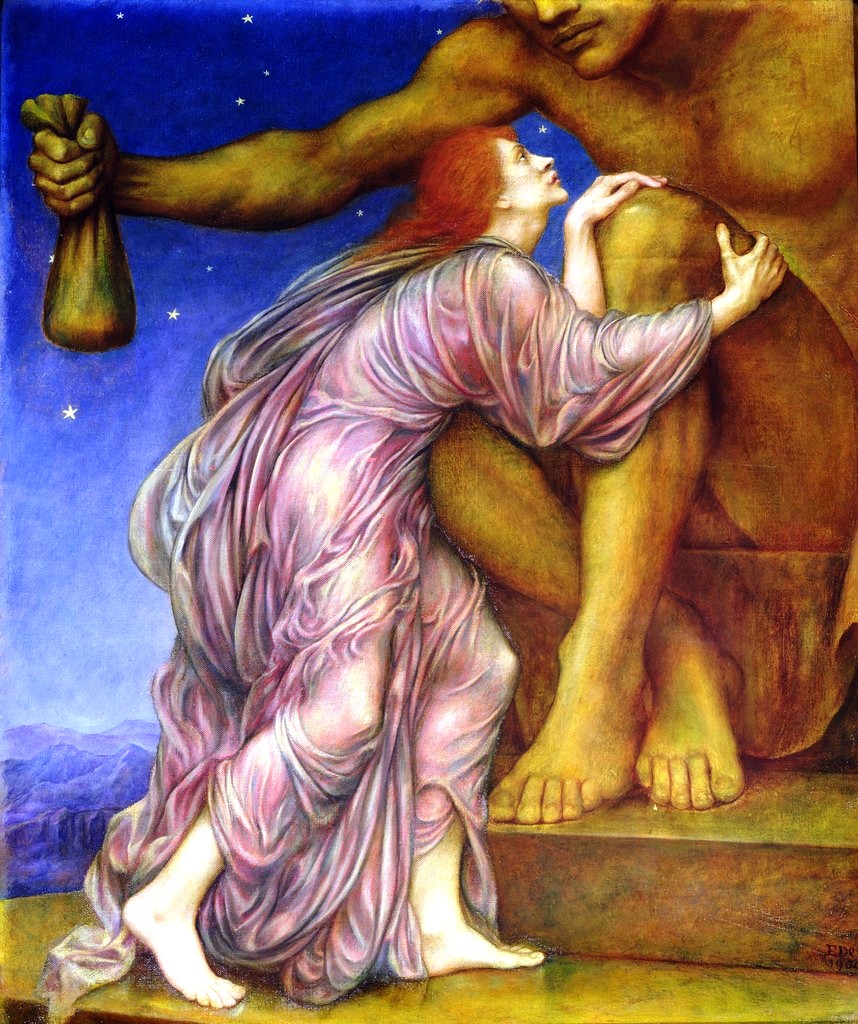PURITY, CONTENTMENT, AUSTERITY, SELF-STUDY, AND SURRENDER TO GOD ARE THE LAWS TO BE OBSERVED.
Each has to be understood deeply. First is “purity,” shauch. You exist in the world as a body; embodied, you exist here. If your body is ill how can you be healthy? If your body is poisoned you are poisoned. If your body carries too many toxins, is heavily burdened, you cannot be light, you cannot have wings.
So now you have to work on your body and its purity.
There are foods which make you more earth-rooted; there are foods which make you more sky-oriented. There is a way of living where you are more in the influence of gravitation; there are ways of living where you become more available to the opposite phenomenon of levitation.
There are two laws: one is gravitation, another is grace. Gravitation pulls you down; grace pulls you up. Science knows only gravitation; yoga knows grace also. And yoga seems to be more scientific about it than science itself because every law must have an opposite. If the earth pulls you down there must be something which is pulling you up also; otherwise the earth would have pulled you completely and pulled you in – you would have disappeared. You exist on the surface of the earth. That means there exists a balance between the law pulling you down and the law pulling you up. Otherwise you would have been destroyed by the earth long before – you would have gone back into the womb of the earth and disappeared. But you exist. There is a balance between the opposites, and every law is possible only if the other, the opposite, exists. The name of the opposite law is “grace.”
You may have felt sometimes, unknowingly, one day in the morning, suddenly, you feel light. Hmm?… As if you can fly. You walk on the earth, but your feet are not falling on the earth – you are so weightless, featherlike. And someday you are so heavy, so burdened, that you cannot even walk. What is happening? Then you have to analyze your whole style of life.
Something helps you to be light, and something helps you to be heavy. All that makes you heavy is impure, and all that makes you light is pure. Purity is weightless; impurity is heavy and burdened. A healthy man feels light, weightless; an unhealthy man feels too much burdened by the earth, too much pulled down. A healthy man does not walk; really, he runs. An unhealthy man: even if he sits he is not sitting, he is sleeping.
Yoga knows three words, three gunas: sattva, rajas, tamas. Sattva is purity; rajas is energy; tamas is heaviness, darkness. What you eat makes your body and, in a certain sense, makes you. If you eat meat you will be more heavy. If you just live on milk and fruits you will be light. Have you observed sometimes being on a fast how weightless you feel, as if the whole weight of the body has disappeared?
If you stand on a measuring machine it will show your weight, but you don’t feel it. What has happened? The body has nothing to digest; the body is freed from the day-to-day routine. The energy is flowing, the energy has no work to do – it is a holiday for the body. You feel relaxed; you feel beautiful.
One has to watch one’s food. Whatsoever you eat, it is no ordinary matter. You should be careful because your body is constituted of whatsoever you have eaten in the past. Every day you are constituting it with whatsoever you are eating.
Eating less or more, or just right, also, makes much difference. You can be an obsessive eater – you can eat too much of that which is not needed – then you will be very, very low, very weighted down. You can eat just the right amount: you will feel happier, not weighted down – energy flowing, not blocked. And one who is going to fly into the inner world, is trying to reach the inner center, will need to be weightless; otherwise the journey cannot be complete. Being lazy you will not be able to enter that inner center. Who will walk up to that inner center?
Be careful what you eat, be careful what you drink – be careful how you keep and care for your body. Small things matter. For an ordinary man they don’t matter because he is not going anywhere. Once you start on the path, everything matters.
Whether you are taking a bath every day or not – it matters. Ordinarily it doesn’t matter. Working in the market, in the shop, it doesn’t matter if you have taken a good bath or not. In fact, if you have been taking a good bath every day it may be a disturbance in your market. You may feel so light that to be cunning may be difficult; you may feel so fresh that to be cheating may be difficult; you may feel so virgin, innocent, that to exploit may almost become impossible. Being dirty may be a help in the market, but not in the temple. In the temple you have to be as fresh as dewdrops, as clean as flowers; only then can you enter the shrine. In the temple, where you leave your shoes, leave the whole world and all the burdens of it. Don’t carry them in.
Bath is one of the most beautiful phenomena – very simple, but if you start enjoying it, it becomes a meditation for the body. Just sitting under a shower and enjoying it, swaying or humming a song…. Or humming a mantra – then it becomes doubly forceful. If you are sitting under your shower and humming “aum” and the water falls on your body and the aum falls in your mind, you are taking double showers: the body is being purified by the water, it belongs to the world of elements, and your mind is purified by the mantra of aum. After the bath you will feel ready to pray – you would like to pray. After this bath and the mantra you will feel totally different; you will have a different quality and aroma around you.
Shauch, purity. means purity about food, purity about body, purity about mind – three layers of purities. And the fourth, which is your being, needs no purity because it cannot become impure. Your innermost core is always Pure, always virgin, but that innermost core is covered with other things which can become impure – which become impure every day. You use your body every day; dust collects. You use your mind every day; thoughts collect. Thoughts are just like dust. Living in the world, how can you live without thoughts? You have to think.
Body collects dust, becomes dirty; mind collects thoughts, becomes dirty. Both need a good, cleaning bath. It should become a part of your style. It should not be taken as a law; it should be just a way of living beautifully.
And if you feel pure then other possibilities immediately open because everything is linked with everything else; it is a chain. And if you want to change life, always start from the beginning.
The second step of niyam is “contentment,” santosh. A man who feels healthy, whole, light, weightless, fresh, young, virgin, will be able to understand what contentment is. Otherwise you will not be able to understand what it means – it will remain a word. Contentment means: whatsoever is so beautiful, the feeling that whatsoever is is the best that can be. A feeling of deep acceptance is santosh, contentment, a feeling of saying yes to the whole existence – as it is.
Ordinarily the mind says, “Nothing is right.” Ordinarily the mind goes on finding complaints – “This is wrong, that is wrong….” Ordinarily the mind is negative: it is a no-sayer, it says no easily. It is very difficult for the mind to say yes because once you say yes the mind stops; then there is no need for the mind.
Have you watched this phenomenon? When you say no, the mind can think on and on and on because “no” is not the end. “No” has no full stop to it; it is just a beginning. “No” is a starting phenomenon; “yes” is the end. When you say yes, there comes a full stop; now there is nothing for the mind to think about, to grumble about, to grudge, to complain – nothing. Once you say yes, mind stops; and that very stopping of the mind is contentment.
Contentment is not consolation, remember it. I have seen many people, who think they are content because they are consoling themselves. No, contentment is not consolation; consolation is a false coin. When you console yourself you are not content. In fact, you have a very deep discontent inside – but seeing that discontent creates worry, seeing that discontent creates anxiety, seeing that discontent leads nowhere, logically, you have persuaded yourself that “this is not the way.” So you have forced a false contentment on yourself: you go on saying, “I am content. I don’t hanker for thrones, I don’t hanker for riches, I don’t hanker for this and that…” but you hanker. Otherwise, from where comes this “don’t hankering”?
You hanker, you desire, but you have found that it is almost impossible to reach; so you are cunning. You are being clever: you say, “It is impossible to reach.”
Inside, you know it is impossible to reach, but you don’t want to feel defeated, you don’t want to feel impotent, you don’t want to feel like a weakling, so you say, “I don’t hanker.”
You must have heard the beautiful story of one of the old storytellers, Aesop. A fox comes near a garden. She looks up: beautiful grapes are hanging. She jumps but her jump is not enough. She falls short. She tries and tries… but she can’t reach. Then she looks all around, just to see that nobody has seen this defeat.
Then she walks haughtily. A small hare who was hiding in a bush comes out and asks, “Aunt, what has happened?” He has seen that the fox was defeated, she was proved impotent. The fox says, “Nothing. Those grapes are sour.”
This is consolation. Finding that you cannot reach, you rationalize that the grapes are sour; they are not worth reaching. Not that you are impotent, powerless – “They are not worth reaching. Not that you are defeated, but that you have renounced them. I have seen many people who have renounced the world, and they are nothing but representations of the Aesop story. I have come across many sannyasins, “mahatmas,” but you can see in their eyes… Still, the desire for the grapes. But they say they have renounced because the world is futile, it is an illusion, maya. They have not read the Aesop fable. They should read it. It will be more helpful to them than reading the Vedas and the Geeta, and they should try to understand what has really happened: this is a rationalization of the ego.
Consolation is a trick: contentment is a revolution. Contentment does not mean that seeing failures all around, you close your eyes and you say, “This world is illusory; I don’t desire for it.” One of the greatest haiku poets of Japan, Baso, has written a small haiku. The meaning of it is, “The man is blessed who, seeing dewdrops disappear in the morning sun, does not say that the world is fleeting, it is illusory.” A rare haiku. I will repeat: “Blessed is the man who, seeing the dewdrops in the morning sun disappearing, does not say that the world is illusory, that the world is just a dream.” It is so easy to console yourself by saying that.
Contentment is a positive state of being; consolation is a suppression. But consolation looks like contentment. A man came to me and he said, “I am a man of contentment. For my whole life I have remained content, but nothing happens.” I was surprised. I asked, “What do you want? Contentment is enough. What else do you want?” He said, “I have read in all the scriptures that if you are content, everything will happen to you. And nothing happens. And I have seen people who are not content, and they have succeeded. I am a failure. I have been befooled.”
This man was trying, through contentment, to attain some desires. The contentment is false – he is being tricky. And with existence you can’t be tricky.
You cannot deceive it; you are part of it. How can the part deceive the whole?
The whole knows before part starts deceiving.
I also say that everything happens to the man who is content – because contentment is everything. This is not a result, that you should practice contentment in order so that everything happens to you – God and bliss and nirvana – no. Contentment in itself is the thing. A contented man comes to know that contentment is everything, everything has already happened. More and more his yes grows, more and more his being is attuned to acceptance. More and more he feels everywhere things are as they should be.
If you are pure, contentment becomes possible. What is contentment? It is seeing, seeing the whole – how beautiful it is. Contentment comes automatically if you can see the morning, how beautiful; if you can see the afternoon, how beautiful; if you can see the night, how beautiful. If you can see that which surrounds you continuously, it is such a wonder, such a continuum of wonder, every moment a miracle… but you have become completely blind. Flowers bloom – you never see; children laugh – you never hear: rivers sing – you are deaf; stars dance – you are blind; Buddhas come and try to awake you – you are fast asleep.
Contentment is not possible.
Contentment is awareness of all that is already there. If you can just see the glimpse of what is happening already, what more can you expect? To expect more will be sheer ingratitude. If you can see the whole, you will be simply thankful; you will feel a tremendous gratitude arising out of your being. You will say, “All is good, everything is beautiful, everything is holy. And I am thankful, because I have not earned it and I was given the chance, the opportunity, to live, to be, to breathe, to see, to hear – to see the trees blossoming and to hear the birds singing.”
If you can become aware – just a little awareness and you will not see that there is anything to be changed, anything to be desired – everything has already been given to you. Because of your complaints – clouds of complaints, negativity – you cannot see; your eyes are filled with smoke and you cannot see the flame.
Contentment is a seeing – a different seeing – of life: not seeing through your desires, but trying to see whatsoever is already the case. If you see through the desire, you will never be content. How can you be… because desire goes on and on? You have ten thousand rupees; the desire says one hundred thousand are needed. When you have one hundred thousand, the desire has gone away; now it is desiring ten lakh rupees, a hundred lakh rupees. Whenever you will reach that point, the desire will always have gone ahead of you. It travels ahead of you. It is never with you; you will never meet it anywhere. Wherever you go you will always find it like the horizon – just there, somewhere in the future. It will always be so. And there will follow discontent: desire ahead, then discontentment will be your state. And discontent is hell.
When you have understood this, you look at the reality not through the screen of desire; you look immediately, you look directly, you put aside the desire and you just see. You open the eyes and you just see, and everything seems to be so perfect…. I have seen it! That’s why I say this to you. It is so perfect that it cannot be improved upon. It is simply the last thing. Then contentment descends on you like an evening: the sun, the scorching sun of desire has set, and the silent breeze of the evening and the silent darkness descend on you – and soon you will be enveloped in it, in the warmth of the night, the womb of contentment.
Contentment is a way of seeing; but when you are innocent, light, weightless, only then it becomes possible.
Tags: Patanjali Yoga Sutra 25.1 Purity And Contentment










